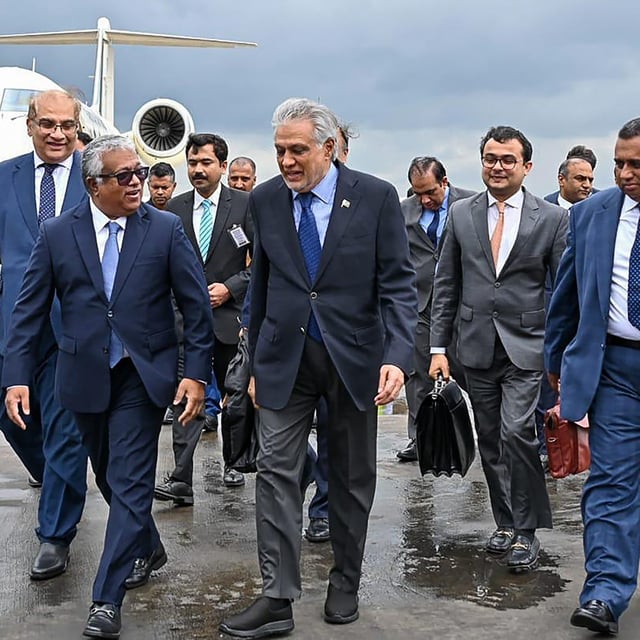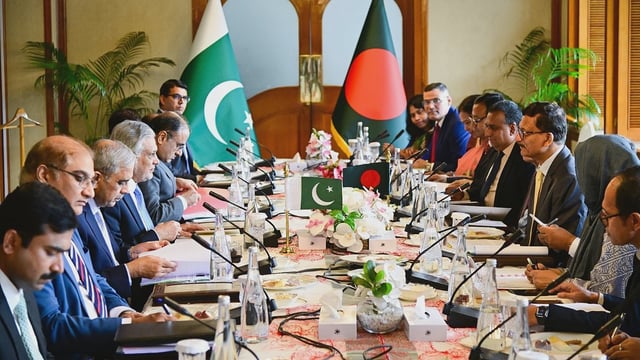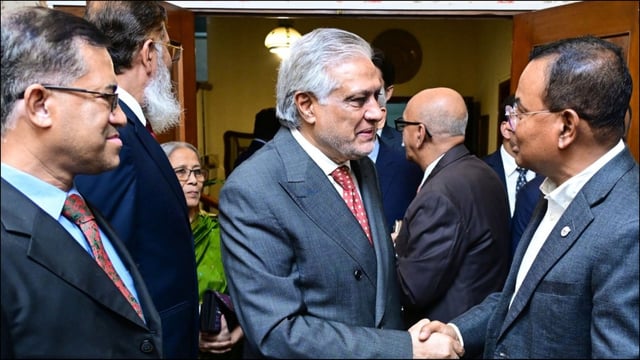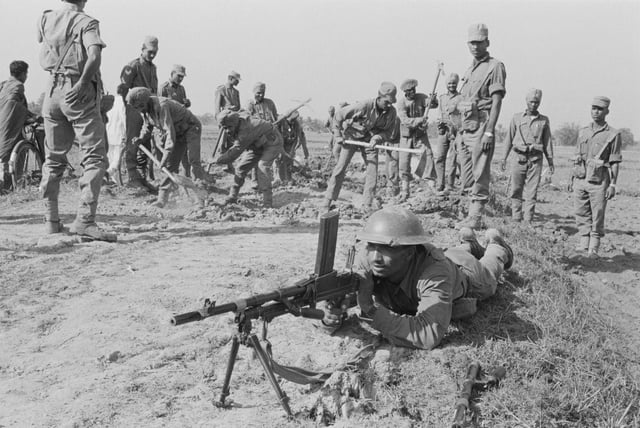Overview
- Officials said six instruments were signed in Dhaka, including visa abolition for diplomatic and official passport holders, a joint working group on trade, a cultural exchange programme, and MoUs linking foreign service academies, state news agencies, and strategic studies institutes.
- Talks also moved forward on economic connectivity, with plans under discussion for direct Dhaka–Karachi flights and expanded government-to-government commerce.
- Ishaq Dar met interim leader Muhammad Yunus, foreign affairs adviser Touhid Hossain, and delegations from BNP, Jamaat-e-Islami, and the National Citizen Party as Pakistan emphasized engagement with a broad range of stakeholders.
- Dar stated that the 1971 genocide question was resolved in 1974 and again in the early 2000s, a claim challenged in Dhaka as opposition figures pressed for acknowledgment and the Awami League denounced normalization without recognition.
- The rapprochement follows Sheikh Hasina’s ouster in 2024 and cooler Dhaka–New Delhi ties, with Indian outlets reporting close monitoring of the Pakistan–Bangladesh reset.



